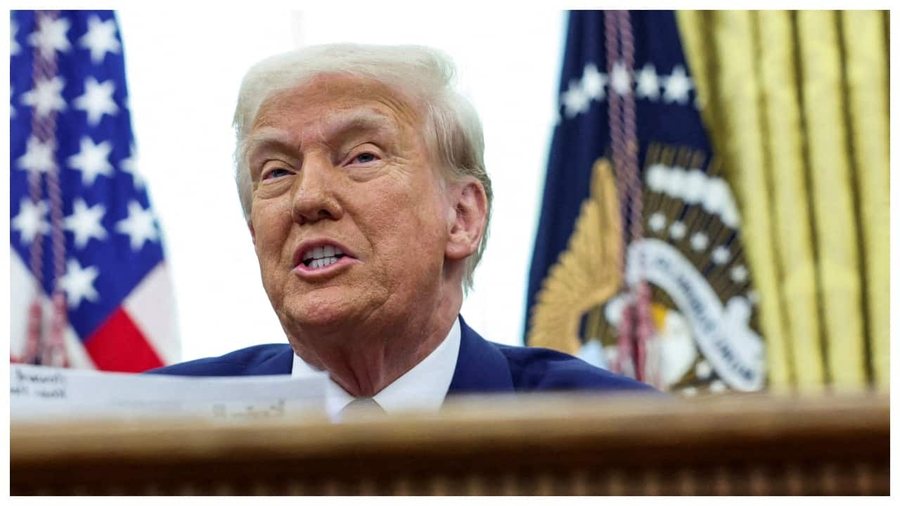
Jonathan Martin
MUNICH – This was the week when Europe's fears about Donald Trump's America began to become reality.
And it happened just as the continent's leaders gathered in Bavaria for the annual Munich Security Conference, which often feels like a gathering of "psychiatrists trying to calm emotions," as Latvia's president described it on Sunday.
European officials had strong reasons to seek therapy, if not a glass or three of local beer.
At every turn, the Trump administration seemed to confirm Europe's worst fears: chaos, extremism, protectionism and, above all, leniency toward Vladimir Putin. Let's take them one by one.
Chaos and the attitude towards Russia
Secretary of Defense Pete Hegseth opened the week of horror for Europe.
On his first visit to the continent, he declared that any negotiations to end the war in Ukraine would not end with a return to its pre-2014 borders or membership in NATO. He also added that Europeans should not assume that the presence of US troops would last forever.
These statements were followed by confusion and anger.
Hegseth tried to tone down his comments, but Trump reiterated them. Even Republican allies were shocked. Senator Roger Wicker said it was a gift to Putin, even before the ceasefire talks had begun.
For Europeans, it was a relief that Trump only talks about Trump, and his statements do not always represent the administration.
As Europe digested Hegseth’s shocking statements, Vice President JD Vance arrived in Munich. He offered no reassurances about the transatlantic alliance or America’s commitment to the continent’s security. And he used the speech to argue that Europe’s greatest challenge came not from without but from within, and that the continent must be more accepting of far-right parties.
So it doesn't matter the biggest war in Europe since World War II, according to Vance. He suggested that Europe should lower its protections against far-right parties and accept them into government.
This caused a diplomatic incident. The next day in Munich, German Chancellor Olaf Scholz mentioned his visit to the Nazi Dachau concentration camp with Vance and made it clear that “never again” really meant “never again.” Friedrich Merz, leader of the German conservative opposition and candidate for chancellor, openly criticized Vance and called him a hypocrite.
Trump's trade war
While Vance ignored the real war in Ukraine, Trump launched an economic war from Washington by proposing reciprocal tariffs on all imported goods.
He demanded that import taxes be brought into line with those of other countries, including the value-added tax in Europe. EC President Ursula von der Leyen responded immediately by threatening strong measures in response.
Trump's relationship with Putin
But geopolitics was the most worrying aspect of the week.
Trump reiterated that the war would not have happened if he had been president, avoiding any condemnation of Russian aggression. He said that “he and Putin strongly believe in GOOD REASON and agreed to work together and visit each other.” It was reported that Trump and Putin would begin negotiations on Ukraine in Saudi Arabia – without Ukraine being involved.
Europe worried but organized
Over the weekend, Europe began looking for ways to persuade Trump to support Ukraine. Senator Lindsey Graham showed Trump a map of Ukraine’s mineral wealth and reported that Trump became more interested in the war when he learned of Ukraine’s vast reserves of rare earth minerals. Ukraine, however, rejected an offer from the Trump administration that called for half of the country’s rare earth minerals to be transferred to American companies in exchange for military aid.
Rubio, a useful ally for Europe?
In Munich, a small hope for Europe was Secretary of State Marco Rubio. Rubio expressed clear support for Ukraine and signed a G7 statement pledging “unwavering support” for Ukraine. European diplomacy began to wonder how it could keep Rubio close to the Trump administration.
What can Europe do to appease Trump?
The short-term answer was known from his first presidency: spend more on defense. David Petraeus, the retired general, said that increasing defense spending is necessary and will please Trump. Croatian Prime Minister Andrej Plenković said that he has increased defense spending fivefold.
Finnish President Alexander Stubb said Europe must show it has a clear strategy for Ukraine. He noted that Trump was interested in building Finnish icebreakers for the Arctic and in Nokia technology as an alternative to China's Huawei. Stubb has even spoken to Trump twice by phone about the issue.
This is a different administration, with a different approach, Stubb said.
Europe should not dramatize the situation, but be calm and prepared. And, if necessary, pull Trump back with economic and military agreements./ Bota.al (A2 Televizion)











